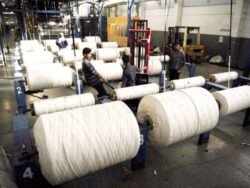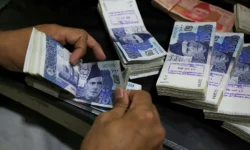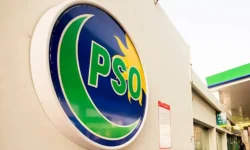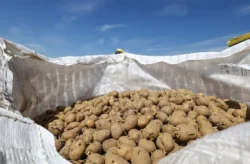SIFC boosts grain exports, spurs small farm growth

Mansoor Ahmad
Publishing date: 27 April 2024
Published in: The News
While SIFC is patronizing corporate farming that could make Pakistan a net exporter of grains, the food manufacturing companies are also playing their role by facilitating small farmers to produce spices and vegetables through the best globally acceptable practices.
There are quite a few food companies in Pakistan that supply packed spices, salt, chilies, and recipes that give taste to many food preparations consumed in Pakistan and other South Asian countries. Their products go to Europe, the Middle East, and Europe (Europe is mentioned twice, consider removing one) and in many other countries where South Asians have emigrated.
These food companies operate at a dual disadvantage according to Abrar Hasan, the CEO of National Food Limited; the few documented companies in Pakistan operate with a huge disadvantage against the non-documented food suppliers that dominate the local market and pay no taxes. In the foreign markets, the Pakistani companies have to face many hurdles from the regulators.
The regulations in different countries are different. A product acceptable in Europe may not comply with FDA regulations in the United States. Moreover, the absence of good farming practices impacts the quality of our produce. Even if the quality is excellent, the absence of certification to this effect makes the product unacceptable in foreign countries.
It was found that to scale up, food companies need upgradation, but foreign exchange in this regard is not available to them. Still, these companies are somehow exporting around $100 million or more to different destinations. The companies, until recently, were supplying their products to their dealers in each region. These dealers used to open a small letter of credit and place the next order when the first consignment was sold.
Experts said this model was not progressive as it could not attract corporate buyers or large grocery chains that need replacements immediately after their stocks are exhausted. Hasan said now most of the food companies, including his own, are adopting the Amazon model under which 15-20 containers of their products are stocked in an area, and they seek orders from large hotel chains, grocery chains. With this model, Hasan expects to multiply exports.
However, Hasan added, this is not enough; “we have to improve our value chain from farm to table.” The big documented domestic suppliers produce quality products, but some do not conform with the regulations of the importing countries that want traceability from farm to factory. For this reason, food companies are forced to import part of some inputs like tomato paste to comply with global standards. Tomato paste, for instance, is imported from China at $1464 per tonnes.
The same quality tomato for making paste was produced in Pakistan at a 37 percent lower price, resulting in a saving of over $540 per tonne by NFL through its project ‘Seed To Table’. It was through a pilot project with progressive farm-managing companies that it was able to empower local farmers and fortify Pakistan’s agriculture value chain. Now it is scaling up.
Hassan said “we are seeking partners to fuel his company’s NFL, the vision of reshaping Pakistan’s agricultural landscape”. The ‘Seed to Table’ project began in August 2023 with a vision to reduce the country’s dependency on imported raw materials, particularly the annual import of tomato paste amounting to USD 10 million. “Through the dedicated efforts of all stakeholders in the project, including farmers, tomato seeds were cultivated in September 2023 over 500 acres in different parts of Sindh. The harvests started in February this year, yielding around 8,000 tons of premium-quality tomatoes so far,” he added. “It presents us with the opportunity to export in a dollar 10 billion plus market.”





